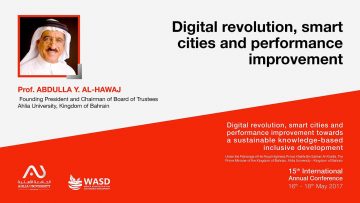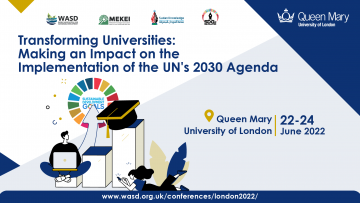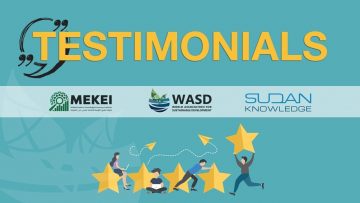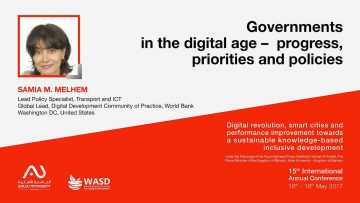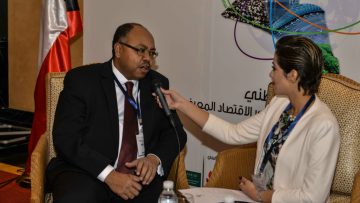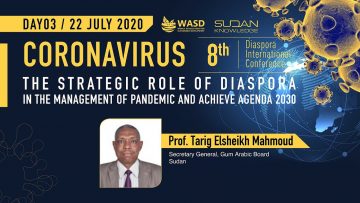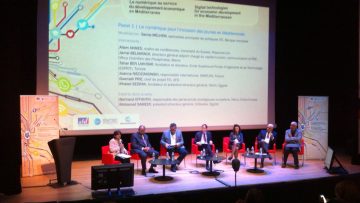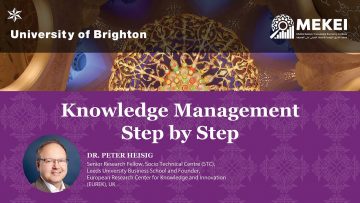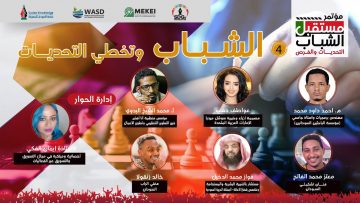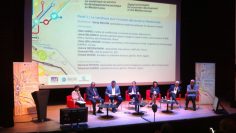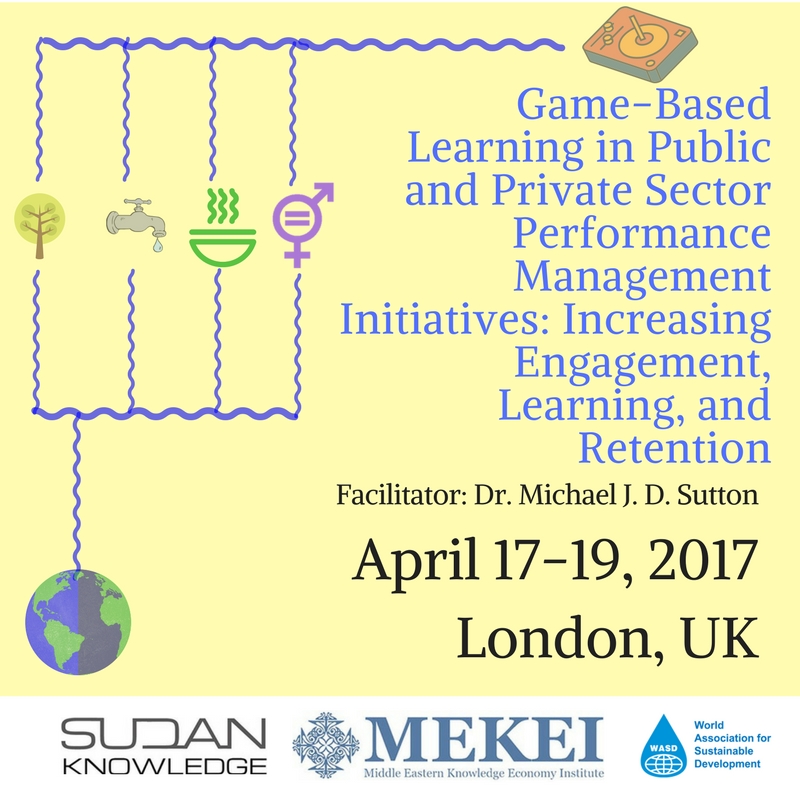
Game-Based Learning: Disruptive Approaches to Education, Learning, Training, and Development
17-19 April 2017, London – UK
Game-based Learning (GBL) emerged on the academic and enterprise scene in the late 1990s. GBL encompasses fun, engagement, serious learning, and interactive entertainment. Game-Based Learning is often considered a disruptive learning approach and is founded upon two key premises that are emerging within the fields of education, learning, training and development (LTD): Learning engagement is being transformed by significant changes in education and training; and Generation X, Y, and Z have grown up with critical and deep computer and video games experience.
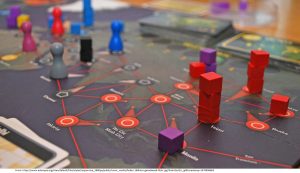 A serious game or simulation, when constructed with discernable learning outcomes, can create interactive experiences that actively engage the players in the learning process. Experimentation, graceful failure, and identification of lessons learned can result from a game-based learning environment, where decisions and actions are chosen, consequences experienced, goals are achieved, and feedback furnished. Risks are mitigated, and a sense of discovery is instilled in the player. At the same time, card-based games, 2-dimensional, and 3-dimensional serious games can present employees with compelling challenges and quests set within realistic experiential environments. Gamification may be defined as the process of integrating game theory and design, game elements, game aesthetics, and game mechanic into a learning experience. Gamification of processes, products, and services increases engagement in employees, managers, and customers. The results can be demonstrated in terms of:
A serious game or simulation, when constructed with discernable learning outcomes, can create interactive experiences that actively engage the players in the learning process. Experimentation, graceful failure, and identification of lessons learned can result from a game-based learning environment, where decisions and actions are chosen, consequences experienced, goals are achieved, and feedback furnished. Risks are mitigated, and a sense of discovery is instilled in the player. At the same time, card-based games, 2-dimensional, and 3-dimensional serious games can present employees with compelling challenges and quests set within realistic experiential environments. Gamification may be defined as the process of integrating game theory and design, game elements, game aesthetics, and game mechanic into a learning experience. Gamification of processes, products, and services increases engagement in employees, managers, and customers. The results can be demonstrated in terms of:
- creative thinking,
- effective and efficient workplace and customer service activities,
- improved participation and loyalty,
- increased knowledge acquisition and application within educational and learning activities,
- increased performance management,
- innovative business practices, and
- organizational and cultural transformation.
Gamification in private, non-profit, and public sector initiatives builds passion, rigour, organization, discipline, resiliency and grit. Simulations support the construction of immersive experiential learning environments. Gamification in businesses not just the triggering of “funification” of the work activities. Gamification creates a foundation for:
- cultivating leadership, teamship, followship, collaboration, and communityship traits;
- improving soft skills, individual, and business unit performance;
- focusing attention upon the workplace through personal and team reflection that can be described in terms of affect, behavior, and cognition (ABC);
- achieving learning and performance outcomes and goals.
Game-based Learning in business must align with the learning goals and outcomes of training and development, and clearly demonstrate that learning can be evaluated and achieved. Serious games-based experiences drive personal change and transformation by generating an attitude of acceptance of the challenge and constant innovation through participant commitments.
CONTEXT: Acquire a hands-on context for positioning gamification, serious gaming, and simulations within the learning framework associated with your enterprise, public sector institution, non-profit organization, or institution of higher education. Games will get you hooked on new forms of learning.
INSIGHTS: Develop insight into why game-based learning has become so relevant to educating and engaging Gen, X, Gen Y, and Gen Z— Millennials in emerging customer arenas, knowledge-based workplaces, and the classrooms. Games can provide a safe zone for graceful failure, feedback, and rethinking scenarios.
EXPERIENTIAL LEARNING: Experience useful exemplar games and simulations for team building, leadership, communications, and entrepreneurship/intrepreneurship. Serious games are an extraordinary method for retaining learning.
DIY (DO IT YOURSELF): Experience the goal of building your own games and testing them with other like-minded “serious gamers.” Gaming favours soft skills development and learning.
Prerequisites
Participants do not require any technical or IT experience, except the capability to interact with physical games and online simulations/games through a Windows or Apple Mac web-based user interface. No specific knowledge of game design is necessary to participate. For each afternoon half of the days, participants will identify and build out an idea for a serious game associated with their business, educational, or public sector environments.
Target audience
This training is suitable for thought leaders who need to interact and build relationships with Gen X, Gen, Y, and Gen Z—Millennials:
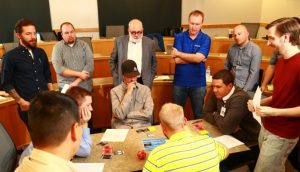
- executives,
- business managers,
- training and development professionals,
- project managers and team leads,
- senior instructional designers,
- human resources directors and trainers,
- entrepreneurs/intrepreneurs, and
- higher education instructors, administration, and staff.
The participants will experience gamification in the “raw.” Principles, processes, methods, approaches, and techniques will be conveyed in a structured fashion to participants for their potential re-use. Serious gaming can be relevant to hard skills development, (such as accounting, finance, and operations); but the audience will be exposed initially to soft skills development in this workshop.
Course structure
- Interactive workshop with set of activities to help you engage with the knowledge and concepts introduced within the workshop.
- Your tutors will be on hand to guide you through the course and will expect you to bring to bear personal experience and reflection on the topics covered.
- Group work will be required for participants to engage in the workshop. Such activity allows participants to embed the new knowledge within their experience through active discussion and conceptual challenges.
DAY 1
- Meet and Greet (coffee and light breakfast served).
- Session Agenda and Goals, Introduce the agenda, speakers, and participants; allocate the teams, and identify the process for capturing lessons learned and knowledge nuggets.
- Game 1 & Debrief: Card Exercise—Building Reflective Capacity and SMART Goal Setting
- Game 2 & Debrief: Developing Non-Verbal Communication Skills, Problem-solving skills, and Teamship and Leadership Skills
- Simulation # 1 & Debrief: Building Soft Skills in a Business Environment
- Gamification—Transforming the LearnScape, CustomerScape, and WorkScape: Gamification, Serious Games, and Simulations Dialogue—with emphasis on the impact on higher education; learning, training and development (LT&D); enterprise workplaces; and customer scenarios.
- Building Your Own Serious Game – Stage 1: Introduction to game mechanics, dynamics, immersive game environment, storytelling, game play, player roles, ending condition, levels, user experience, learning outcomes, uncertainty, chance, and skill.
- Design Thinking Workshop – Stage 2: to stimulate dialogue on serious games that will be designed in Days 2 and 3.
- Continued informal discussions and end of Day 1.
DAY 2
- Meet and Greet (coffee and light breakfast served)
- Session Agenda and Goals, Re-introduce participants, goals, and outline the day’s session.
- Game 3 & Debrief: Experiential approach to Entrepreneurship and Intrepreneurship
- Game 4 & Debrief: Leadership and Team-based simulations for creating soft skills
- Building Your Own Serious Game – Stage 3 design and construct serious games that will be peer-reviewed.
- Building Your Own Serious Game – Stage 4: continuation of the design and construction of participant serious games that will be peer-reviewed.
- Continued informal discussions and end of Day 2.
DAY 3
- Meet and Greet (coffee and light breakfast served)
- Session Agenda and Goals, Re-introduce participants, goals and outline the day’s session
- Play the Constructed Games (Session 1): All participants will introduce their games and players will be chosen to experiment with the game for 30-45 min and debrief.
- Play the Constructed Games (Session 2): All participants will introduce their games and players will be chosen to experiment with the game for 30-45 min and debrief.
- Play the Constructed Games (Session 3): All participants will introduce their games and players will be chosen to experiment with the game for 30-45 min and debrief.
- Break & Networking
- Play the Constructed Games (Session 4): All participants will introduce their games and players will be chosen to experiment with the game for 30-45 min and debrief.
- Workshop Wrap Up.
- Continued informal discussions and end of Day 3.
Course material
Included in the course fee, all games, game pieces, timers, boards, etc. will be provided by the facilitator. The facilitator will provide basic foundational material for game theory and design, game elements, game aesthetics, and game mechanic.
Upon completion, learners will receive a metal medallion, certificate, and digital badges that may be displayed upon their personal/corporate website.
Facilitator
Dr. Michael J. D. Sutton
Chief Gamification & Knowledge Officer
FUNIFICATION LLC
United States






